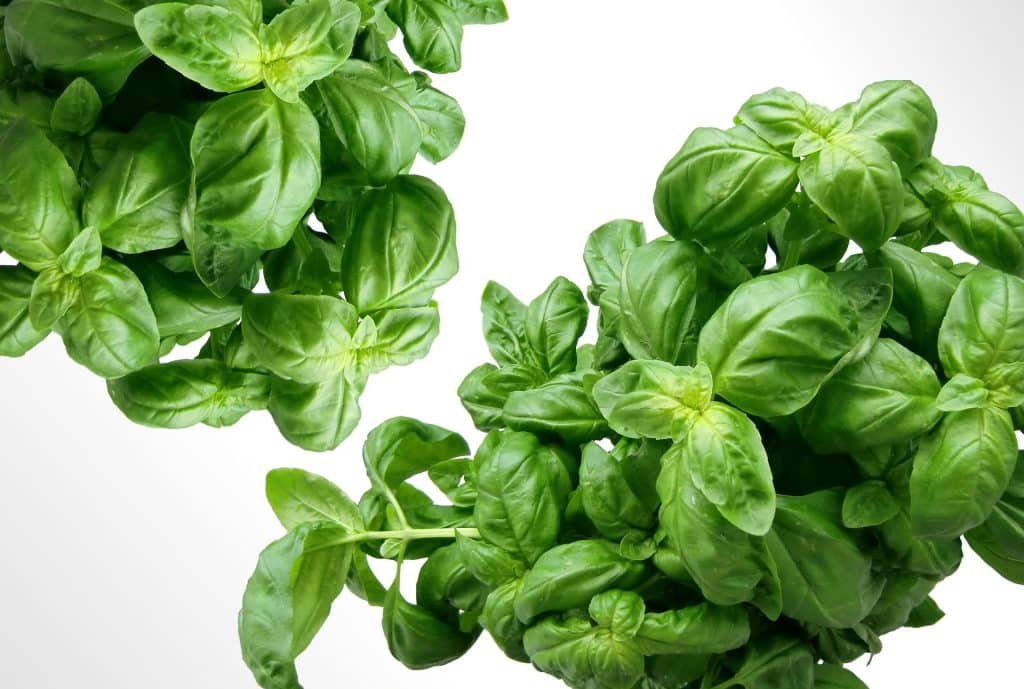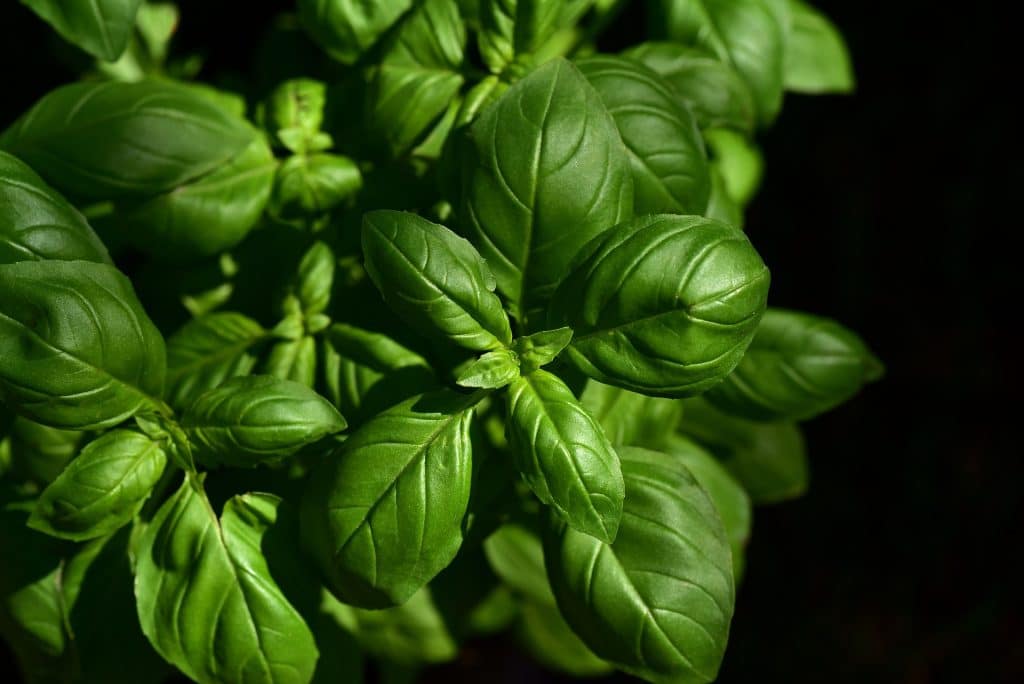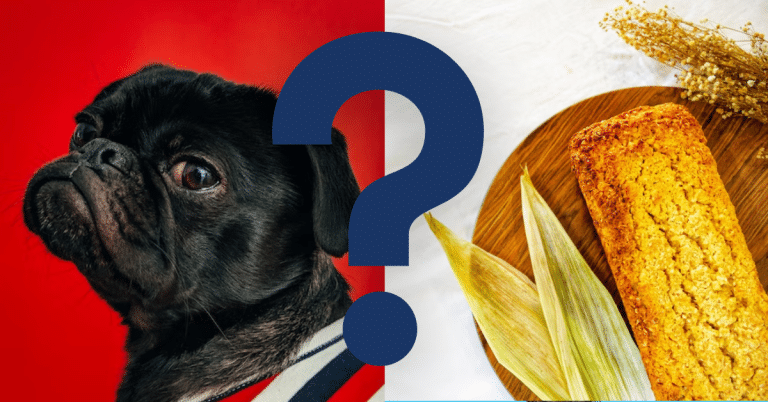Can Dogs Eat Basil? A Vet’s Opinion

Basil is an annual herb that is widely known to be used in traditional cooking recipes. Basil is an integral part of Italian cuisine, as many pasta sauces are made from it. This green mint plant has a peppery taste and sweet smell and is often used in Thai, Indonesian and Vietnamese cuisines as well. Basil leaves are smooth to the touch, and these plants are straightforward to grow, hence require minimal effort. This is why many people grow this in their home gardens, but can you feed Basil to your dog?
Yes! Basil is excellent for your dogs because it contains a high level of antioxidants, essential to help get your body rid of free radicals. Moreover, it has anti-inflammatory properties, making it great for your dogs. Basil helps prevent cellular damage as well. Hence, you should incorporate this plant into your dog’s diet.
Let’s dive in:
Benefits Of Basil For Dogs
Basil leaves are a great addition to a dog’s diet as they contain many beneficial nutrients. Basil is an excellent source of antioxidants, which help protect your dog’s body from damage caused by harmful molecules called free radicals. These antioxidants can also help to reduce inflammation in the body, which can be especially helpful for dogs with arthritis or other inflammatory conditions. In addition to its antibacterial and anti-inflammatory properties, Basil can also have a calming effect on dogs. The essential oils found in basil leaves, such as linalool and eugenol, have been shown to relax the body. This can help to alleviate anxiety and stress in dogs, making it an excellent natural remedy for dogs who experience fear during thunderstorms or fireworks.
Furthermore, basil leaves also contain essential vitamins and minerals such as vitamin K, vitamin A, and iron, which are essential for maintaining good health in dogs. Vitamin K plays a crucial role in blood clotting and bone health, while vitamin A supports good vision and immune function. Iron is essential for producing red blood cells and helps prevent anaemia in dogs. Therefore, incorporating basil leaves into your dog’s diet can be a great way to ensure that they are getting a variety of essential nutrients to support their overall health. Furthermore, basil leaves contain essential oils that can help with digestion and stimulate appetite in dogs. These oils can help to soothe upset stomachs and relieve nausea, making them an excellent remedy for dogs with digestive issues. Additionally, Basil is rich in antioxidants, which can help to boost the immune system and promote overall health in dogs. Therefore, incorporating a small amount of basil leaves into your dog’s diet can provide them many health benefits. Thus, Basil has tremendous benefits and must be added to your dog’s diet.

How To Safely Give Basil To Dogs
There are some ways to ensure that you provide your dog with the benefits of Basil in a safe manner. One way to do this is to chop the Basil leaves into tiny pieces to make it easier for your dog to eat and digest. Consider boiling or steaming the Basil leaves to make them more palatable for your dog. When serving, add a small amount of Basil to your dog’s food and monitor them for any signs of digestive distress, such as vomiting or diarrhoea.
Another option is to add a small amount of fresh Basil to your dog’s water bowl. The essential oils in the basil leaves will infuse the water with a mild flavour that your dog may find refreshing. However, be sure to change the water frequently to prevent bacterial growth and potential health issues. Additionally, if you plan to use Basil as a supplement, it is essential to discuss it with your veterinarian first to ensure that it is safe for your dog and will not interfere with any medications they may be taking. By incorporating Basil into your dog’s diet safely, you can provide them with the numerous health benefits of this herb.
Will Basil Make A Dog Sick?
Like with any other food item, the excess is always wrong, and hence Basil should also be given in moderation. Dogs that consume excessive Basil may experience vomiting, diarrhoea, or an upset stomach. Furthermore, essential oils present in Basil, particularly methyl chavicol, can be toxic to dogs when consumed in large quantities. As a result, it is always best to use fresh Basil in moderation and to avoid giving dogs any concentrated basil extracts or essential oils. If a dog does exhibit any adverse reactions after consuming Basil, it is best to contact a veterinarian right away.
It is also important to note that certain varieties of Basil may not be safe for dogs to consume. For example, holy Basil, or Tulsi, is commonly used in traditional medicine, but it is not recommended for dogs. Additionally, some commercial herb blends may contain other herbs that can be harmful to dogs, so it is always best to double-check ingredients before giving any new food or treats to a dog. Overall, while Basil can be a beneficial addition to a dog’s diet, it is essential to use it responsibly and constantly monitor a dog’s reaction to any new food or treat.

Vet’s Summary
Basil can be a healthy addition to your dog’s diet as long as it is given in moderation and with proper preparation. It can provide numerous health benefits, such as improved digestion, anti-inflammatory effects, and a calming effect on your dog’s mood. However, it is essential to be cautious and make sure that your dog does not overeat Basil, as it may lead to some adverse effects, such as gastrointestinal upset and even kidney damage. Apart from incorporating Basil into your dog’s diet, consider adding probiotics to their meals. Probiotics are beneficial bacteria that live in your dog’s gut and aid in digestion and overall gut health. These can be especially helpful for dogs with digestive issues or those who have recently undergone a course of antibiotics, which can disrupt the balance of gut bacteria. Probiotics can be found in various forms, such as powders, capsules, and even certain types of yoghurts. As always, consult with your veterinarian to determine the best way to add probiotics to your dog’s diet.
Videos To Watch
If you are wondering if basil is good to give your dog, watch this:
And if you want to know what a dog can NOT eat, watch this:






